Informações
Sinopse:
Duração: 00h07m
Data de lançamento: 29 de junho de 1951
Genêros: Animação.
Elenco: Pinto Colvig,
(30 votos)
?
?
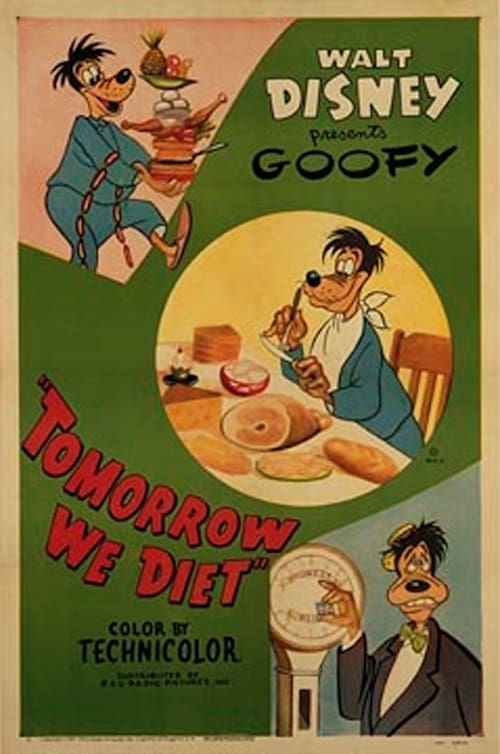
Sinopse:
Duração: 00h07m
Data de lançamento: 29 de junho de 1951
Genêros: Animação.
Elenco: Pinto Colvig,
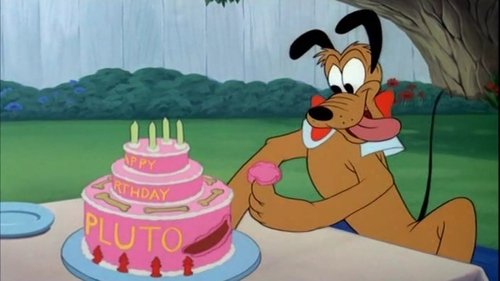
Pluto faz aniversário, para comemorar, Mickey prepara uma festinha para ele, E não falta confusão e diversão.

Goofy is portrayed as George Geef, a typical common man who makes a perfect prey for all kinds of swindlers, bookmakers and the like, eager to be a 'good looser' after they 'won' all his money; never mind the name of the game nor the venue, from alley to casino and 'friendly' poker nights. Alas, even when lady luck smiles at him, the poor player doesn't stand a chance against the worst gold-digger of all: the wife, who 'manually' blames his irresponsible behavior when he looses but otherwise cheerfully claims all his occasional hard-earned winnings for her own fashionable waste.
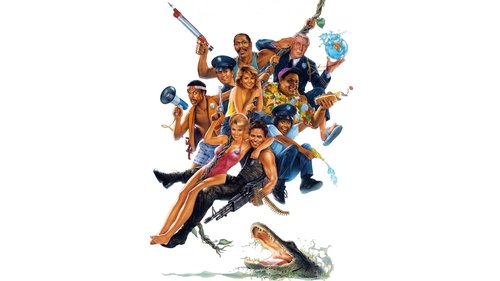
Os recrutas estão em Miami para uma convenção de academias, na qual o comandante Lassard, que se aposentou recentemente, será homenageado com o título de policial da década. Acidentalmente Lassard fica de posse de jóias roubadas, o que faz com que seja sequestrado por uma quadrilha. Ao saber do ocorrido seus comandados mais uma vez se reúnem, para resgatá-lo.
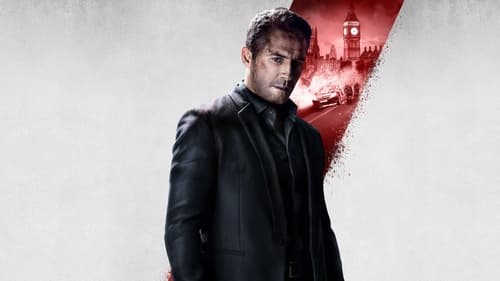
Um ex-agente do MI6 é jogado de volta ao mundo da espionagem. Sua missão é descobrir a verdade sobre as operações conduzidas por serviços secretos desconhecidos, mas para isso ele arriscará a própria vida.
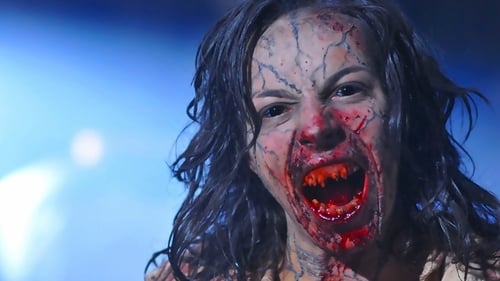
Já se passaram cinco anos desde que o surto de ameaça zumbi foi supostamente contido. Mas os corajosos homens e mulheres da Divisão-R, uma organização para destruir os mortos-vivos, começam a ver sinais de um segundo surto que acabaria com a humanidade de uma vez por todas. Uma operação contra os mortos-vivos foi gravada por um jornalista.
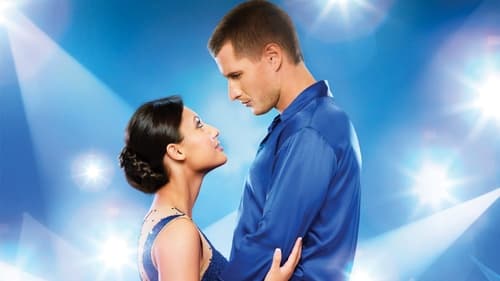
Após perder seu parceiro de patinação artística, Alex abandona as competições. Desafiada por James, um patinador de alta velocidade rebelde, ela decide voltar a competir. Os dois formam uma turbulenta parceira na busca da medalha de ouro.
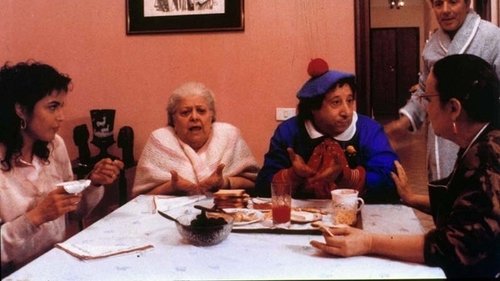
Had come of age and unemployed, Peter decides to go back to school to take the elementary school. However, his academic performance continues to be poor so much so that his grandmother to play for the votes of a report card to the football pools coupon. The grandmother with the votes of Peter will win, using the amount paid to renew their tavern, without giving any money to his nephew, who will retaliate by closing all his family in the bathrooms of the new restaurant. Eventually Peter was rejected despite the efforts of his teachers, but Peter does not seem to be over: receives, in fact, a visit to Camazzo, her neighbor and Head of the third class of the Navy, which gives him an envelope containing the fateful "call to Arms".
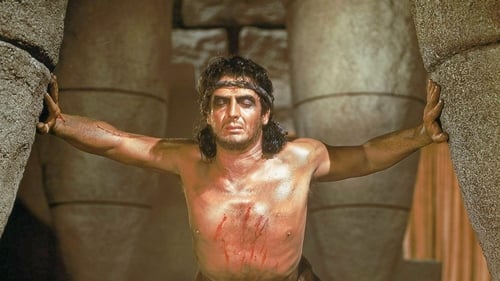
Sansão, um forte homem de uma tribo escravizado pelos filisteus, se apaixona por Semadar, uma devota ao reino dominante que se envolve com Ahtur, o que leva a uma guerra entre os dois povos. Na briga, Semadar acaba morta e sua irmã Dalila, que sempre amou Sansão secretamente, jura vingança. Ela planeja seduzi-lo para que ele revele seu segredo para entregá-lo ao seu líder, Saran de Gaza.
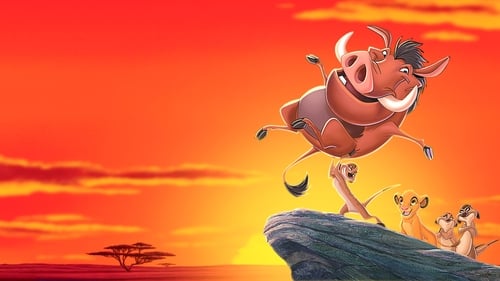
Timão e Pumba começam a assistir o primeiro filme do Rei Leão, e Timão fica insistindo para que Pumba avance até a parte em que eles aparecem, porque eles não estão no início do filme. A partir daí, Pumba resolve contar um pouco da história dos dois, que começa antes da jornada de Simba. Contam sobre a mãe de Timão e sobre o Tio Max, descobrem porque Timão deixou a colônia, e onde ele aprendeu o Hakuna Matata. Também relatam como os dois se conheceram, e os perigos que enfrentaram enquanto procuravam pelo lar dos sonhos.
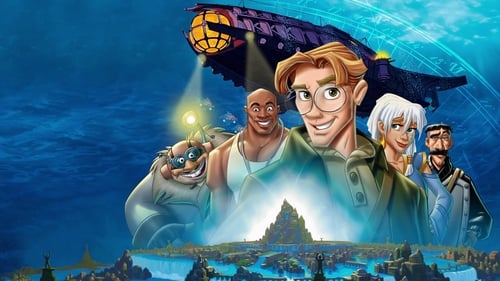
A equipa de arqueólogos e exploradores mais qualificada do mundo é liderada pelo historiador Milo Thatch e embarca no incrível submarino de 1000 pés Ulysses para mergulhar nos mistérios do mar. A expedição subaquática sofre uma reviravolta inesperada quando a missão da equipe tem de passar de exploração do reino de Atlantis para a sua proteção.

Ciumenta e vingativa a fada Malévola lança um feitiço cruel sobre a princesa Aurora no dia do seu nascimento. Aurora está condenada a cair em um sono profundo quando completar 16 anos de idade e, para despertar novamente, sua única salvação seria um beijo de seu verdadeiro amor. As três fadas bondosas, Flora, Fauna e Primavera tentam evitar a profecia do mal, mas não conseguem. Agora só resta ao príncipe Felipe enfrentar Malévola e salvar a princesa.
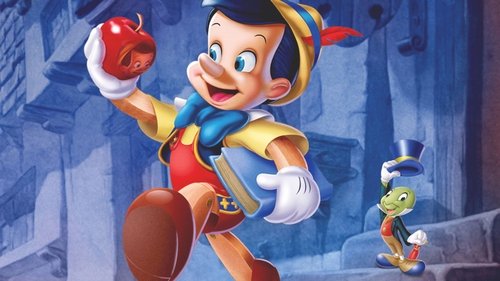
Gepeto é um carpinteiro solitário que, um dia, resolve fazer um boneco de madeira para lhe fazer companhia. Durante a noite, a Fada Azul dá vida ao boneco, que passa a se chamar Pinóquio. Ansioso para se tornar um menino de verdade, Pinóquio se mete em várias confusões, apesar dos constantes avisos de seu amigo Grilo Falante. O boneco tem uma particularidade: sempre que mente seu nariz cresce. Até o dia em que precisa resgatar seu criador, quando ele fica preso na barriga de uma baleia.
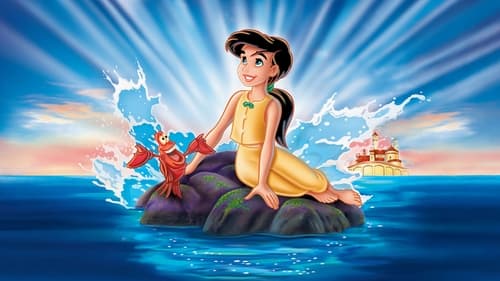
Ariel e seu príncipe encantado Eric, vivem felizes, após a sereia filha do Rei dos Mares, ter abdicado de sua condição para tornar-se mulher. Eles já têm até uma bela menina chamada Melody. Mas, a terrível Morgana arquiteta um plano diabólico para vingar-se de Ariel e Eric, obrigando-os a retornar aos mares para derrotá-la, contando com a ajuda do caranguejo Sebastião e do peixe Linguado, amigos do primeiro filme.
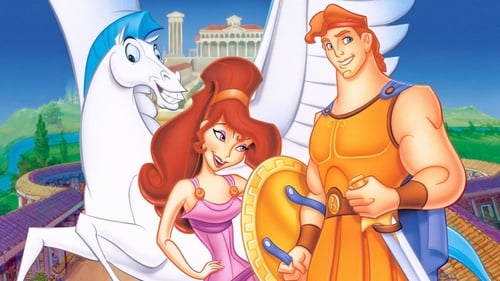
Dono de uma força sobre-humana, o jovem mortal Hércules precisa provar que é um herói para seu pai, o grande deus Zeus. Ele e seus amigos, Pégaso, um cavalo alado e Phil, seu treinador particular, são enganados por Hades, um vilão de cabeça quente que quer conquistar o Monte Olimpo. Hércules precisa decidir entre seus poderes e Meg, seu verdadeiro amor. Só depois de aprender que o importante não é o tamanho de sua força, mas o tamanho de seu coração, ele vai se tornar realmente invencível.